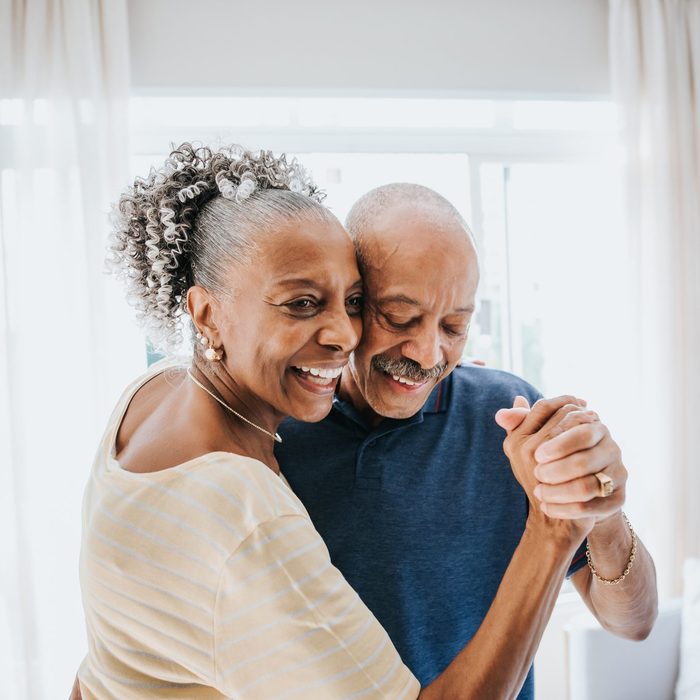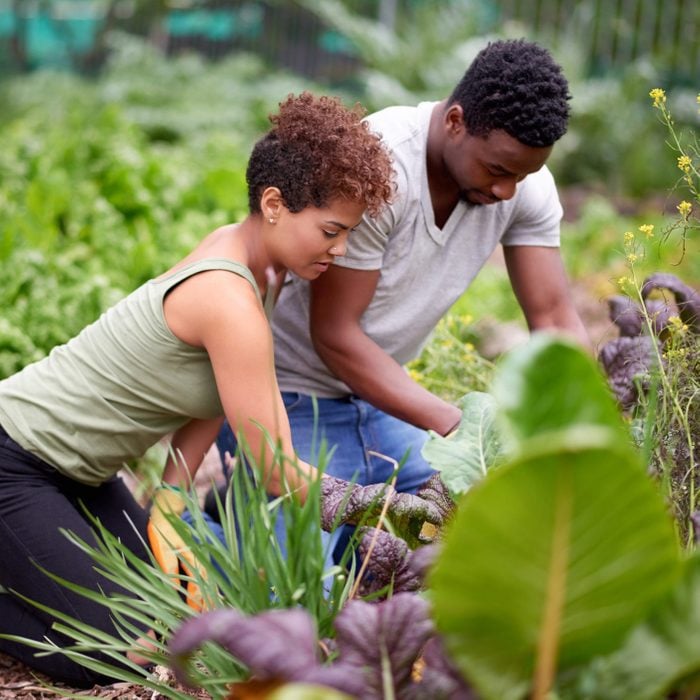
As if we weren’t already living in a complicated era for love and relationships, the pandemic came along and made it trickier than ever to meet somebody special. We’ve all heard that love arrives when you’re not looking for it…which can be one of the most annoying pieces of advice—have you been there? Anyone who’s longing for that special connection can’t help but look for it.
Recently, The Healthy @Reader’s Digest spoke with two married Soto Zen monks, Sensei Koshin Paley Ellison and Sensei Robert Chodo Campbell. Koshin and Chodo co-founded the New York Zen Center for Contemplative Care (NYZC), a Dharma organization devoted to transforming lives through Zen practice, contemplative caregiving training, and direct care. They shared their wisdom about love based on a life of Zen practice, and offered a guide for creating a more peaceful love life.
Get relationship insights delivered daily in The Healthy @Reader’s Digest newsletter

1. Moment-to-moment mindfulness
Says Koshin: “Zen practice … is about recognizing that every moment is a moment of practice.” To him, this means being fully present and cherishing each instance, even when fear or anxiety creeps in. By applying this principle to relationships, we ensure we don’t miss the subtleties of our interactions with our loved one. Koshin exemplifies this practice with a simple yet profound daily ritual: “Every morning before I leave the house, I hold (Chodo’s) face and express how I feel about him.”
With the knowledge that life is both valuable and uncertain, Koshin and Chodo prioritize open and sincere communication in their relationship. This exchange of authentic emotions strengthens their bond and emphasizes the importance of appreciating every moment they spend together.

2. Cultivating compassion through presence
For Chodo, compassion originates from the same mindfulness Koshin describes. Both emphasize the importance of being present, a lesson they learned firsthand as trained chaplains noticing patients’ need for attentive companionship. Chodo shares, “Being with patients who were actively dying … it was essential to be present, bear witness, and listen.” He applies this same practice to his personal life, noting how being deeply intentional about this fosters deep connection and understanding.
8 Ways Patience Improves Your Health—and Tricks to Keeping It

3. Accept it: Many of us are complicated
People are complex. Both monks agree that being in a relationship means understanding and embracing this complexity, not running away from it.
Koshin shares a moving anecdote about his grandmother, who, nearing her life’s end, expressed regret for not fully understanding his commitment to Zen Buddhism. Just her acknowledgment of this brought them closer in such an important time to appreciate their final moments together.
Accepting complexity, Koshin explains, allows us to love fully—even the parts we might not comprehend.

4. Transcending past narratives
Hurt feelings can magnify the trauma of past experiences. However, Koshin and Chodo suggest that the past doesn’t have to dictate the present moment. They both encourage bravery to question the stories we tell ourselves. This theme of transcending our narratives is central to Koshin’s new book, Untangled. He explains: “We see something, and we think it has to do with us.”
However, these situations may not have any connection to the way we’re perceiving. By challenging our assumptions and understanding the real context, we can transform our relationship dynamics for the better.
A Guide to Healthy Relationships (and How to Spot Unhealthy Ones)

5. The power of vows
Relationships are based on commitments, symbolized in their marriage vows, which Koshin mentions he reads at least once a week as a reminder of their shared promise. He says, “It is wonderful to remember, what is my vow?” This practice of reaffirmation can extend beyond romantic relationships, reminding us of the depth of our commitments to friends and family.

6. Nurturing inner connection
Both monks agree that you can only be as intimate with someone as you are with yourself. Chodo says, “If you haven’t done your own inner work, on your own inner feelings … then you can’t be as intimate with the other person.”
Putting effort into self-discovery and nurturing self-compassion can deepen the connections in your life, allowing you to trust more and to be more empathetic about others’ experiences.
Padma Lakshmi Reveals Her #1 Self-Care Secret: ‘I Just Treat Myself Like Somebody I Love’

7. Shared rituals and activities
Koshin and Chodo highlight the importance of shared rituals and activities, like cooking, gardening, walking together, or just sharing silence. “These traditions help us remember where we are and what is important,” Koshin says. The moments to enjoy life together remove us from stress and pressure and remind two partners how much they have in common…and how much they have each other’s back.
For the latest in health and wellness, get The Healthy @Reader’s Digest newsletter. Keep reading for more expert advice:
